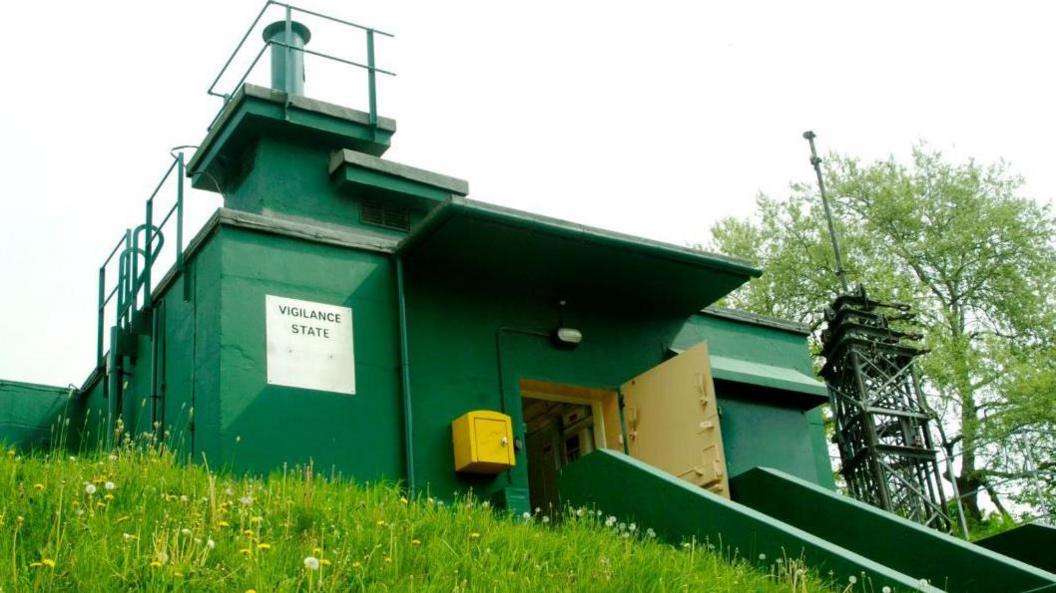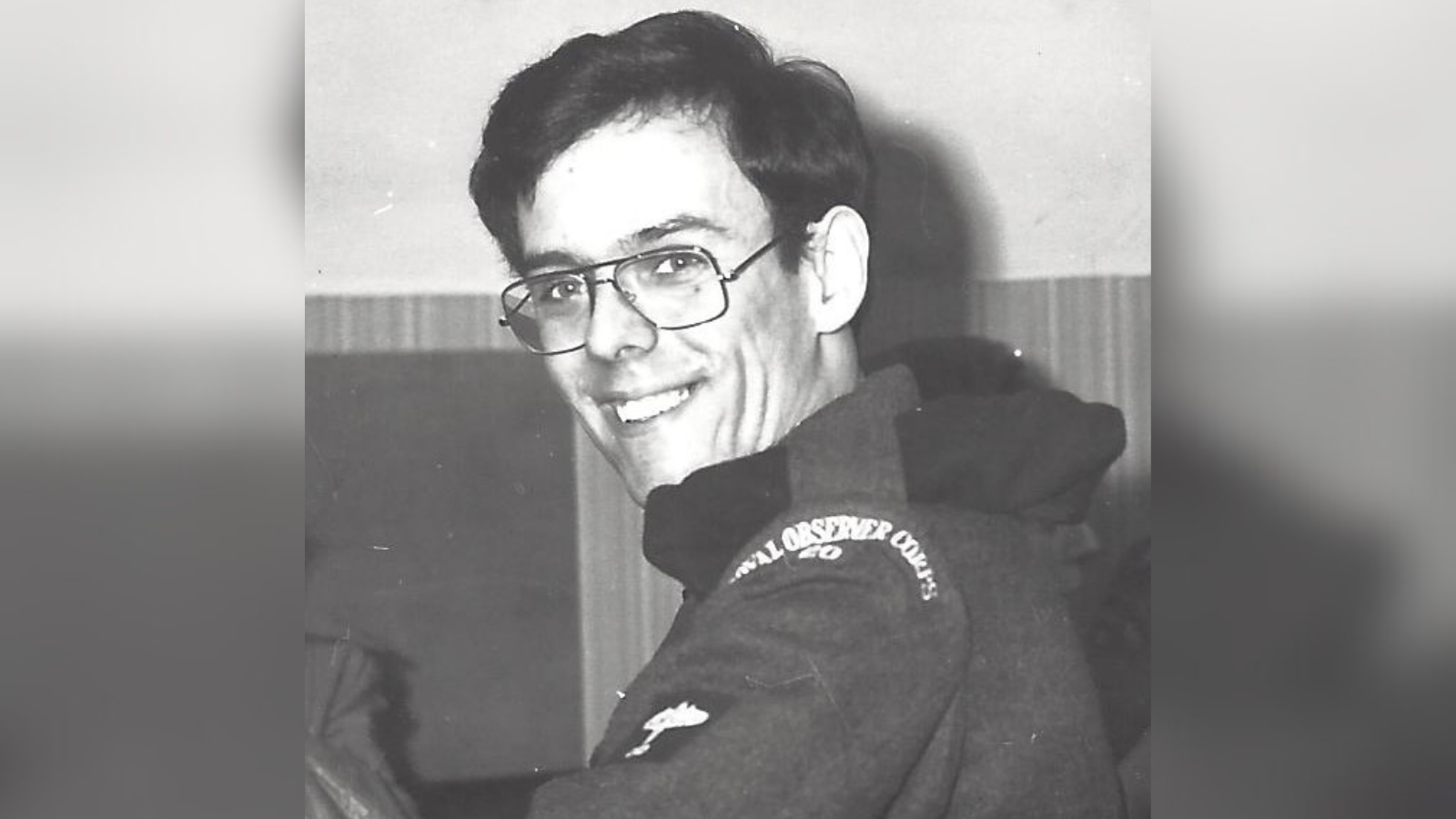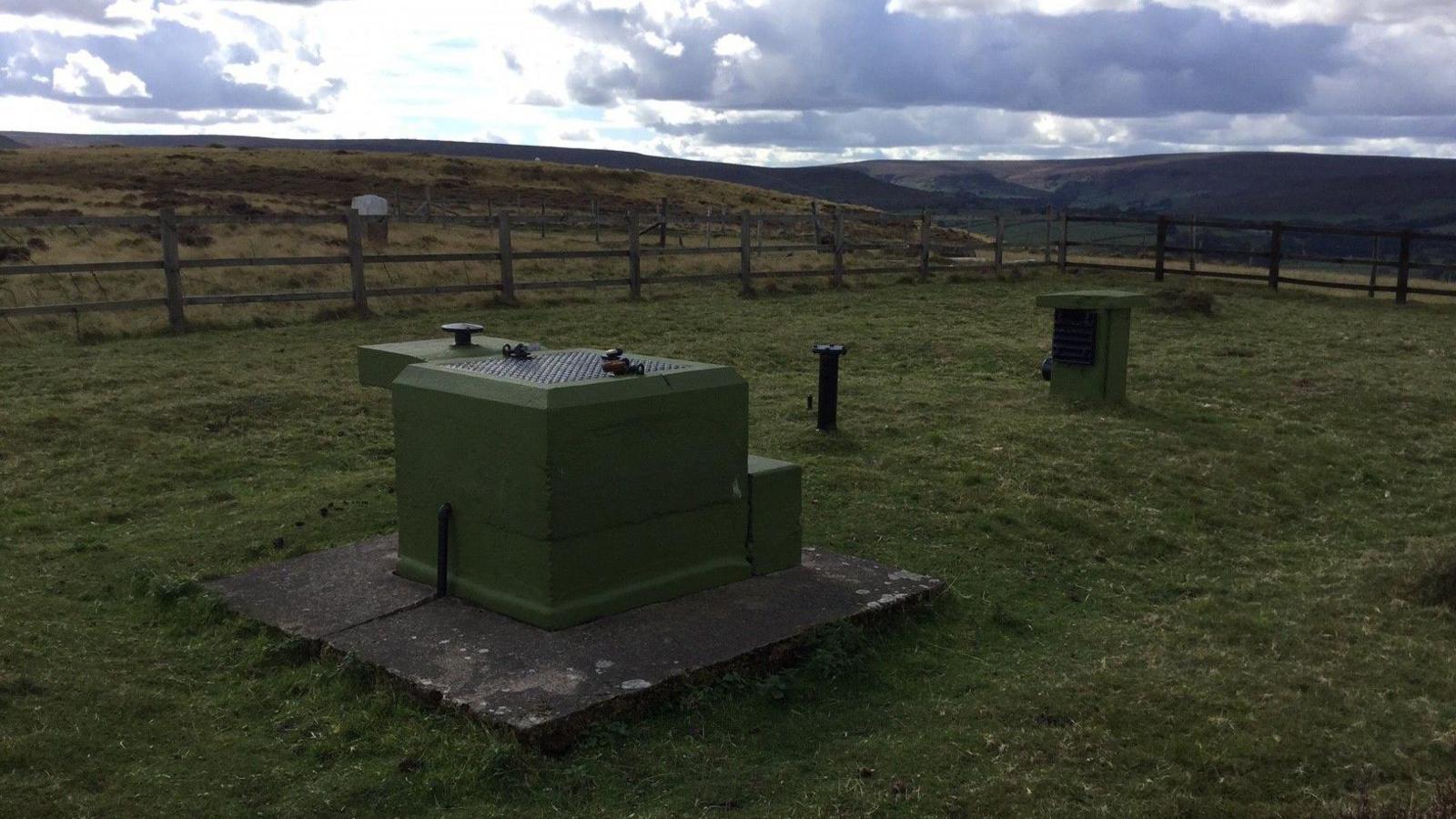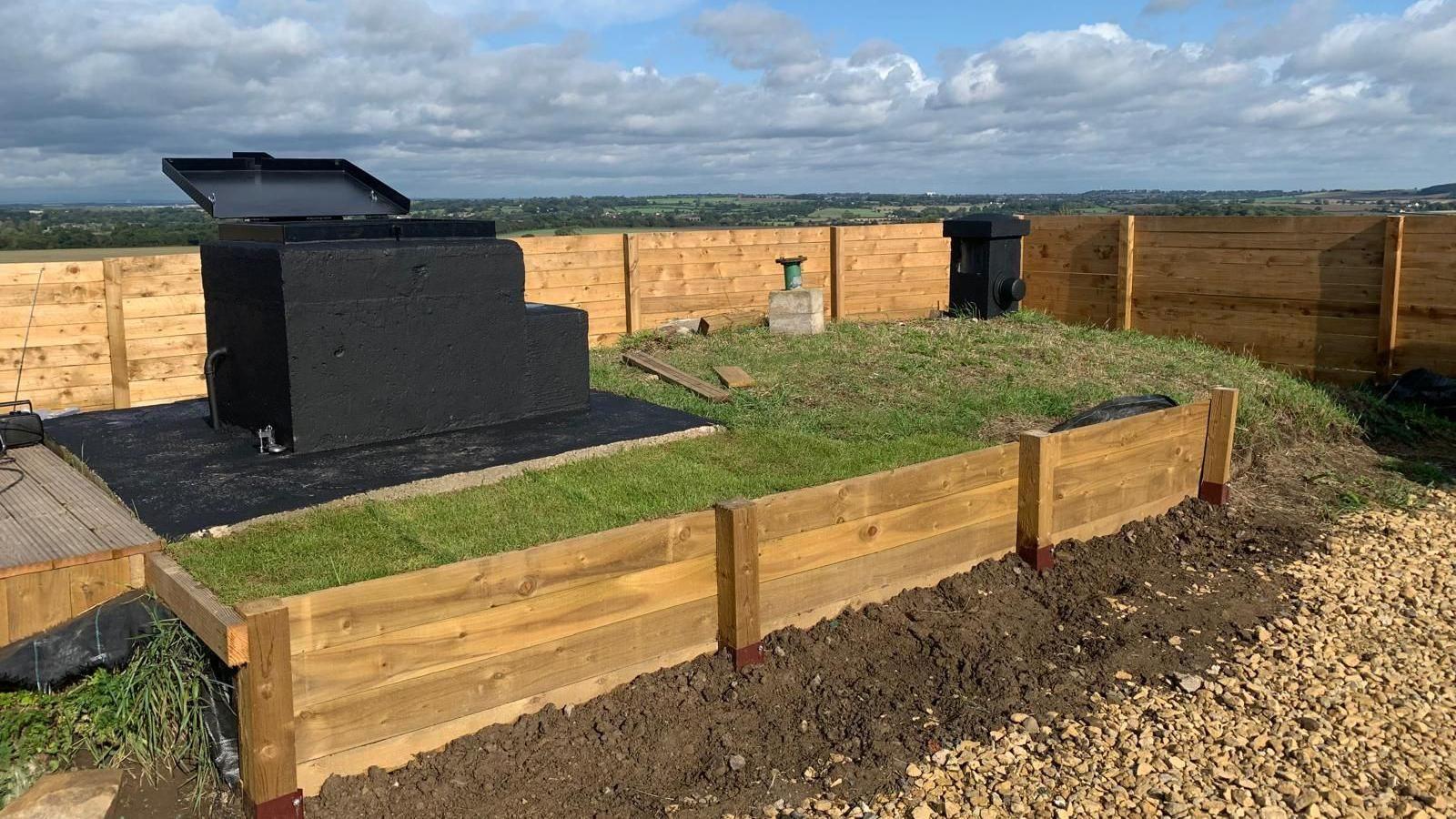Volunteers' role at Cold War bunker remembered

The York Cold War Bunker was operated by the Royal Observer Corps and is now an English Heritage visitor attraction
- Published
The efforts of volunteers who would have monitored nuclear explosions and fallout from a suburban bunker if the Cold War had turned hot are being remembered in York.
Events, including an immersive "transition to war" audio experience, are being held at the bunker in Acomb as part of commemorations marking the centenary of the founding of the Royal Observer Corps (ROC).
The 100th anniversary project also includes collecting the memories of ex-ROC members who served at the bunker, which is now a visitor attraction, to preserve their stories.
Tim Kitching, 66, who joined the ROC in 1975 and who regularly visited the York bunker when it was still operational, said it had "an atmosphere of its own".
"You went through the doorway into the airlock and then down the steps into the labyrinth," he said.
"The impression I was always left with is that people were in different places doing specific jobs, so there was a low-level hum and a tangible sense of purpose."

Tim Kitching was a volunteer in the Royal Observer Corps in Yorkshire
The ROC was a nationwide network of civilian volunteers who, during World War Two, had monitored Britain's skies for signs of attack from enemy aircraft, and who would later be expected to play a vital role during a nuclear war.
At a time of heightened threat during the Cold War, the role of the observers in the York bunker would be to co-ordinate information about nuclear detonations.
Members of the ROC would have left their families and friends behind and gone to the bunker on Monument Close, ready to detect if nuclear bombs had gone off and then make fallout observations.
Mr Kitching started his career in the ROC aged 17 at a smaller monitoring post in Wakefield, one of about 1,500 such bunkers constructed across the UK.
As he moved up the ranks, he would more frequently visit the larger HQ in Acomb.
Listen: The York bunker that's a Cold War time capsule
Mr Kitching said he gave one evening a week and "some weekends" to the role, alongside a full-time job and studying part-time, which he said could be a "juggling act".
"I think you had to have the combination of commitment to what you were doing, and enjoying what you were doing," he said.
"I don't mean that in the sense of enjoying the thought of a nuclear war, but enjoying the sense of purpose and the company of others.
"I was fully engaged with it. It did feel very real. In essence, we weren't operational, but we were training and trying to be the best we could be."
Because the group was made up of civilians, it meant there was a diverse mix of genders, age and occupations, which Mr Kitching said was "its greatest strength".
He added that some volunteers he had known had even been part of the ROC during World War Two and the Cuban Missile Crisis.
Mr Kitching left the organisation in 1989 and it eventually ceased operations in 1995.

ROC volunteers could also be sent to carry out their nuclear vigil at bunkers in rural locations, such as this one in Castleton, North Yorkshire
Kevin Booth, head of collections at English Heritage, which now runs the Acomb site, said the ROC's centenary was a time to reflect on the volunteers' commitment.
They operated in many cases "almost invisibly", but provided a vital service, he said.
"These were men and women who gave their time in defence of the country and almost more importantly, the protection of their fellow civilians," Mr Booth said.
"It's incredible to imagine that people gave their time to train on a bleak landscape, or down a large hole in the ground in Acomb, in case the worst ever happened."
Mr Booth added that English Heritage still wanted to hear from former ROC members to find out more about their personal experiences.
"There's a whole social microcosm of the Royal Observer Corps, and to be able to capture these voices is a really exciting part of the project," he explained.
Meanwhile, Mr Kitching said that the work of ROC members, including those based in the York Cold War Bunker, "stands as a testament to the voluntary spirit of people working together for a common purpose [and] the fact that people from different backgrounds could work together to achieve something great".
Get in touch
Tell us which stories we should cover in Yorkshire
Listen to highlights from North Yorkshire on BBC Sounds, catch up with the latest episode of Look North.
More stories like this
- Published20 August

- Published21 November 2024
